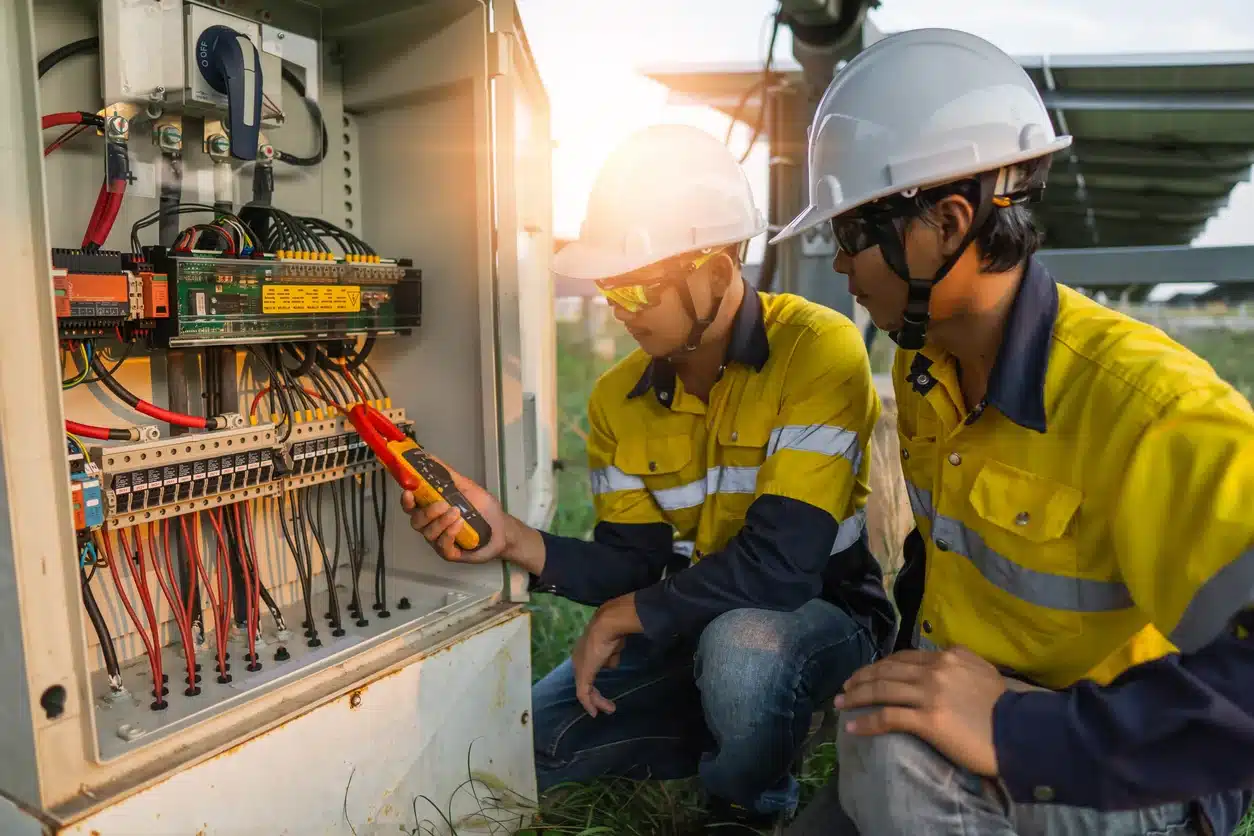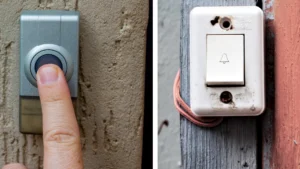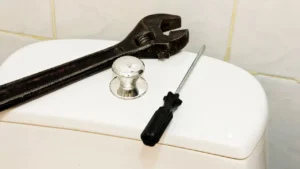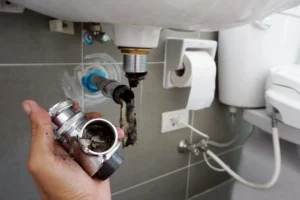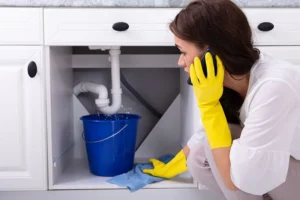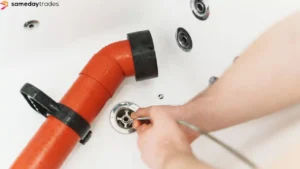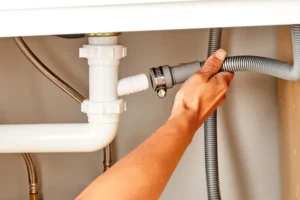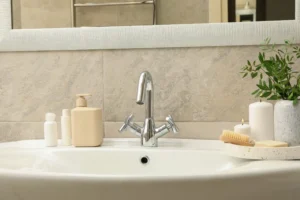Dealing with electrical problems at home can be a real headache. Did you know that most of these issues are common and easily fixable? This article will guide you through identifying and resolving frequent electrical concerns, making your home safer and more comfortable.
Keep reading to become your own handy electrician Adelaide!
Common Electrical Problems in Homes
Homes often face electrical issues, ranging from simple to complex. Some signs of trouble include lights that flicker and circuits that seem too weak.
Power Outages
Power outages happen for various reasons, like bad weather or technical issues. If your lights go out, first check if the whole area is dark. This helps you know if the problem is just in your place or everywhere.
Then, see if the circuit breaker has flipped off and flip it back on if needed. Sometimes, this quick check can fix things right away.
If the power is still off after checking the circuit breaker or if it happens a lot, you might need an electrician’s help. They can find and fix bigger issues that cause frequent blackouts.
It’s good to have their number handy just in case you need them quickly.
Electrical Surges
Moving from power outages, next up are electrical surges. These sudden spikes in power can happen for many reasons. Maybe a lightning strike nearby or faulty appliances sending feedback into the home’s system.
Surges are brief, but they can harm electronics and even reduce their life span.
To tackle surges, start by unplugging appliances that aren’t in use. Especially the ones you suspect might be causing trouble. If surges keep happening, it’s time to call an electrician.
They can find out what’s wrong and fix it before your gadgets get damaged. Using surge protectors is also a smart move to keep your electronics safe from unexpected spikes in electricity flow.
Faulty Wiring
After talking about electrical surges, it’s time to tackle another big issue – faulty wiring. Faulty wiring in homes can cause serious problems. It may lead to fires or shocks if not fixed right away.
Old houses often have this problem because their wires aren’t up for handling today’s electric loads.
You should call a licensed electrician if you think your house has bad wiring. They know how to find and fix the problem safely. Don’t try to do it yourself; working with electricity is dangerous.
A professional will make sure everything is safe and up to date.
Flickering Lights
Flickering lights can be annoying and might signal something minor or more serious. Often, it’s just a loose light bulb. So, first try tightening the bulb. If that doesn’t help, check if the light fixture’s connections are secure.
Sometimes, old bulbs flicker before they burn out—replacing them can solve the problem. But if your whole house is flickering, there could be a bigger issue with your electrical system.
In that case, it’s best to call an electrician for help.
This common issue is easy to spot and usually quick to fix. Next up on our list? Overloaded circuits—a bit trickier and definitely something you’ll want to know about.
Overloaded Circuits
Overloaded circuits happen when too many things run on the same line. Think of it like too many cars on a road, causing a jam. Each circuit can handle only so much. Plug in too many devices, and you might trip the breaker or even start a fire.
To fix this, spread your electric use across different circuits. You might plug the TV into one outlet and the gaming console into another. If this keeps happening, it may be time to call an electrician to check if you need a bigger system.
Next up are tips for keeping electrical problems at bay…
How to Fix Common Electrical Problems
Fixing common electrical problems starts with knowing what to do and who to call. For most issues, checking things yourself first is smart, but often you’ll need an electrician’s help.
Power Outages: Check the circuit breaker and call an electrician if necessary
Power outages can leave you in the dark suddenly. It’s good to know how to handle them safely and efficiently.
– First, find your home’s circuit breaker or fuse box.
– See if the safety switch has flipped off or a fuse has blown.
– If only one room is without power, look for a tripped breaker and flip it back on.
– Check if your neighbours also have no power to figure out if it’s a bigger outage.
– If everything seems fine at your end but there’s still no power, call your electricity provider.
– Avoid opening the fridge or freezer too much to keep food cold.
– Use torches instead of candles to reduce fire risk.
– If you suspect an issue with your wiring caused the outage, stay safe and call an electrician.
– Always have the number of a licensed electrician handy for emergencies.
– Regularly test and maintain your circuit breakers to prevent future outages.
Electrical Surges: Unplug appliances and call an electrician
Electrical surges can happen for many reasons. They can damage appliances and even your home’s wiring. Here’s what to do if you experience them:
– Unplug appliances right away. This step helps protect them from further damage.
– Check if the surge is limited to your home or affects neighbors too. If it’s just your home, the problem might be inside.
– Look at the electrical panel for signs of damage like burn marks or a strange smell.
– Reset any tripped breakers in your circuit breaker panel. Sometimes, this fixes the problem.
-.Unplug everything, then plug in items one by one. This method helps identify if a specific appliance causes the surges.
– Call a licensed electrician. They know how to safely find and fix wiring issues causing the surges.
Always call an expert when dealing with electrical problems to stay safe.
Faulty Wiring: Call a licensed electrician for inspection and repair
Faulty wiring in your home can lead to serious problems. It’s smart to get a licensed electrician to check things out and fix them.
– Notice odd signs like flickering lights, buzzing sounds, or burning smells. These could mean there’s faulty wiring.
– If fuses blow often or circuit breakers trip regularly, it suggests something is wrong with the wiring.
– Discoloured switches or outlets are a red flag. They usually indicate overheating, which faulty wiring can cause.
– Feeling tingles or light shocks when touching appliances? This isn’t normal and could point to wiring issues.
– Check if any part of your electrical system is unusually warm. Overheated wires need immediate attention.
– See if lights dim when you use other appliances. This might mean the circuits are overloaded, often due to poor wiring.
– Have an electrician test the house’s grounding system. Faulty grounding can make wiring unsafe.
– Ask the electrician to inspect all visible wires and connections for wear and tear.
– Make sure your home meets current electrical codes. Older homes might have outdated systems that aren’t safe anymore.
– Finally, consider upgrading electrical panels or circuits if they’re old or not working well.
Fixing faulty wiring keeps your home safe and prevents bigger electrical issues down the road
Flickering Lights: Check the bulb and connections, replace if needed
Flickering lights in your home can be annoying. Often, the fix is simpler than you might think.
– First thing’s first, check if the light bulb is loose. Tighten it gently but firmly.
– Use the right type of bulb for your fixture. Some fixtures need specific bulbs to work properly.
– Swap out old bulbs with new ones. Sometimes, bulbs are just at the end of their life.
– Examine the light switch. Loose switches can cause flickering.
– Look at other connections in the fixture. Make sure everything is tight and secure.
– If multiple lights flicker, check your main electrical panel for any loose connections.
– Consider if your home’s voltage is fluctuating too much and consult an electrician.
– For LED lights, ensure they’re compatible with dimmer switches if you’re using one.
– Replace any old or worn-out dimmer switches with new ones that match your lighting type.
– If fixes don’t work, it’s time to call a licensed electrician to take a closer look.
Overloaded Circuits: Spread out electrical usage and consider upgrading the circuit
Overloaded circuits can cause big problems in your home. They happen when too many gadgets or appliances use power at the same time.
Here’s how you can fix and prevent this issue:
– Find out which appliances use a lot of power. Things like heaters, air conditioners, and ovens are common culprits.
– Try not to use these power-hungry appliances all at once. For example, don’t have the oven, dryer, and heater on at the same time.
– Check the breaker box to see if a circuit has tripped. This is a sign that it’s overloaded.
– If circuits often trip, it might be time to call an electrician. They can tell you if your home needs more circuits or a bigger capacity for electricity.
– Another good tip is to spread out where you plug in appliances. Don’t plug everything into one outlet or extension cord.
– Using energy-efficient appliances can also help. They use less power and are kinder to your circuits.
– Look into getting surge protectors. These help keep your electronics safe from sudden spikes in electricity that can happen when there’s an overload.
– Finally, think about upgrading your electrical panel if it’s old. Modern panels handle electricity better and offer more protection against overloads.
Dealing with overloaded circuits is about being careful with how much electricity you’re using at once and making sure your home’s electrical system can handle the load safely.
Tips for Preventing Electrical Problems
Keeping your home’s electrical system in top shape is easier than you think. Simple actions like regular checks and smart usage can keep trouble at bay.
Regularly inspect and maintain your electrical system
Checking and keeping up with your electrical system is key. Make sure everything is working right and safe. Look at wires, sockets, and switches often. Fix any problems you find or get a pro to help.
This makes sure lights work well and keeps your home safe from electrical fires. It also stops power issues before they start. Next, be careful not to overload outlets or extension cords.
Don’t overload outlets or extension cords
After making sure your electrical system is in good shape, take a look at how you’re using outlets and extension cords. Plugging too many things into one outlet or an extension cord can cause big problems.
It’s a common mistake that can lead to fires or damage your gadgets. Make sure to spread out where you plug in your devices around the house.
Using too many appliances at once on the same outlet isn’t safe. If you need more places to plug things in, think about getting more outlets put in by a pro electrician. This way, you keep your home safe and avoid overloading any single spot with too many plugs.
Use surge protectors
Surge protectors save your electrical devices from damage during power surges. Power surges happen suddenly and can ruin TVs, computers, and other electronics. Plugging your gadgets into a surge protector shields them.
It acts like a barrier, stopping too much electricity from hitting your devices.
Make it a habit to use these protectors in every room. They are easy to find and simple to use. This way, you can keep your favourite electronics safe from unexpected increases in power.
Surge protectors also come with extra outlets, making it easier to connect several items safely in one spot.
Hire a licensed electrician for any repairs or installations
Hiring a licensed electrician keeps your home safe. They know the rules and how to fix problems without risks. It’s smart to call them for any big or small electrical job in your house.
They can handle repairs and new installations with care. Doing it yourself might seem cheaper, but safety and quality work come first.
A pro brings the right tools and skills to every task. They also make sure everything meets the law’s standards. This means less worry for you about fires or other dangers from wrong wiring or setups.
Always go for a skilled electrician, whether fixing a flicker in the lights or upgrading your system.
Educate yourself on basic electrical safety
Learning about basic electrical safety is key. It keeps your home and family safe. You must know the do’s and don’ts around electricity. For example, always keep water away from electrical items.
Don’t plug too many things into one outlet.
Know what to do if an issue happens. If you see a spark or smell something burning, turn off the power and call for help right away. Always use tools with rubber handles when working near wires.
These simple steps can prevent accidents and keep everyone safe around electricity.
Conclusion
Dealing with electrical problems in homes can be a bit tricky, so it’s always good to have a plan. Keeping your home’s electrical system in top shape doesn’t just keep the lights on—it keeps you safe, too.
Regular checks and knowing when to call in the pros play big parts here. Fixing issues like power outages or flickering lights can sometimes be simple, but other times it might need an expert touch.
So, keeping tabs on how things are running and not pushing your system too hard will go a long way to preventing those sparks from flying—both literally and figuratively!

